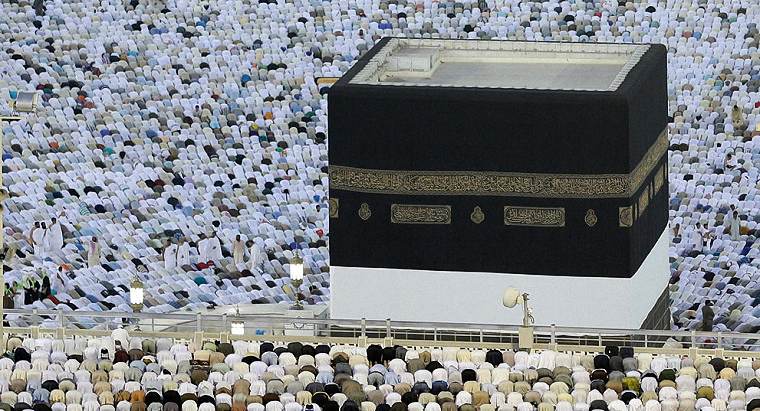
- September 20, 2018
- 213 views
- Author: Ilyas Nassief
- Category: Articles
- No Comments
One of the issues that causes a lot of confusion among our brothers and sisters is what relates to people of innovation in terms of quoting or supporting their statements. Before we discuss the issue, I think it is important and necessary to discuss what constitutes innovation and the danger of falling into it before getting to the issue of the ruling regarding quoting them based on the truth or falsehood of their speech.
Allah the Exalted alludes to false actions or innovations in the Quran such as the verse where He says:
Innovation in the religion is an evil that the Prophet ﷺ warned about. This is because the previous revelations were distorted and lost because of innovation and so our Messenger ﷺ was very strict on this issue. So dangerous is innovation in the deen that it is considered worse than sinning. Sheikh ul Islam Ibn Taymiyyah said about innovation;
So what exactly is bi’da? One shariah definition is: “That which is invented or introduced into the religion without proof.” (Mi’yaar al Bid’a pg.15). In the Hadith narrated by ‘Al Irdaadh Bin Saariyah, the Prophet ﷺ said;
The Prophet ﷺ said also in another well-known hadith;
This hadith is so important that Imam Ahmad Bin Hanbal said:
He (Prophet Muhammad ﷺ) counted this hadeeth as one of them. There is a hadeeth which is ascribed to the Prophet ﷺ which says that,
This hadith is not authentic however the meaning of the statement is true. This means that one can quote from the innovator if his statement is in agreement with the truth. One of the benefits of looking at or knowing their statements is in order to refute them and to clarify the truth. This however is the job of the scholars and the knowledgeable among the students of knowledge.
There is a famous statement which says; “The truth is not known with men but men are known by the truth.” What this statement means is that no person is the sole representative of the truth, but on the other hand, men are known by their adherence and following the truth. Therefore if one says the truth, then it is to be accepted regardless of who he may be.
In an authentic hadith we find another directive in dealing with the statements of the deviants. This narration proves that certain statements can be quoted from the people of innovation if it is meant simply to show what was said and not for the sake of believing what they narrated.
On the authority of Abdullah Bin Amru who said that the Prophet ﷺ said:
Imam al Khataabi may Allah have mercy on him said regarding this hadeeth
Another thing that should be pointed out here is that a distinction must be made in quoting from the innovator who is calling to innovation or outside the fold of ahlu Sunnah altogether and the person from ahlu Sunnah who falls into a mistake while open to the truth. Here I quote a few statements of scholars past and present regarding the innovator who is outside of the fold of ahlu Sunnah.
Sheikh al Islam Ibn Taymiyyah may Allah have mercy on him said on the matter;
Based on this, what is evident to us is that taking statements or citing the people of innovation is something that should be avoided as whatever they have of the truth or agrees with the Muslims with the correct aqeedah can be found from safer sources and people of knowledge. There exists also the strong possibility that the average person may not be able or may not possess sufficient knowledge to help him distinguish the Truth from that which is false.
As for the scholars or academics who made some mistakes in matters of aqeedah, hadeeth or fiqh, scholars have said that it is not altogether haraam to learn from them or to refrain from quoting them completely even when some of them promoted their beliefs and their madhhabs in regards to issues of fiqh. Ahlus Sunnah are fair-minded and just towards those who differed with them. An example of this can be found in the case of Sayyid Qutb.
Shaykh Muhammad Naasir ad-Deen al-Albaani (may Allah have mercy on him) quoted nearly three pages from him in the introduction to his book Mukhtasar al-‘Aluw, starting with the words: “The great ustaadh Sayyid Qutb (may Allah have mercy on him)…” He also said;
On the same tape, Shaykh al-Albaani (may Allah have mercy on him) said:
The Shaykh continues on to say;
Likewise the great scholar Shaykh Saalih al-Fawzaan (may Allah preserve him) narrated four quotations from him in his book at-Tahqeeqaat al-Mardiyyah fi’l-Mabaahith al-Faradiyyah, pp. 21-24.
Fair mindedness however does not mean that one should not highlight and point out the mistakes that scholars or academics who follow the Sunnah make. On the contrary, this is compulsory so that others who read their words will not be confused by their mistakes. I conclude with the words of the great scholar Shaykh Muhammad ibn Saalih al-‘Uthaymeen (may Allah have mercy on him) who was asked:
“Sayyid Qutb is a man who produced some ideas that spread widely in the Muslim world, but people differed concerning him; some glorified him and some criticised him very harshly. We would like our shaykh to explain this matter to us and clarify it. What should the Muslim’s attitude be towards this man, because Sayyid Qutb has had an impact on the Muslim world and he has left a legacy of books and writings, and we would like you to give us some clarification”.
He replied:
“I do not think that there should be any argument or dispute among the Muslim youth concerning any specific man, whether it is Sayyid Qutb or someone other than Sayyid Qutb. Rather the dispute should be about the Islamic ruling. For example, we should examine a statement made by Sayyid Qutb or by someone else, and say: is this opinion correct or incorrect? We should examine it and if it is correct we should accept it, and if it is incorrect we should reject it. But for the youth to argue and dispute about accepting or rejecting a specific person, this is wrong and it is a grave mistake.
Sayyid Qutb is not infallible; scholars who are superior to him are not infallible, and neither are scholars who are inferior to him. The
opinions of any person may be accepted or rejected, except that of the Messenger of Allah (blessings and peace of Allah be upon him and upon his family): his words must be accepted in all cases.
Hence I tell the youth that their arguments and disagreements should not be focused on a specific person, no matter who he is, because if their disputes are like that, they may end up rejecting something that is sound and correct that was said by this person, or they may end up supporting something that is unsound and incorrect that was said by this person. This is a very serious danger, because if a man blindly supports one person and blindly goes against another, he may attribute to the one whom he opposes words that he never said, or he may misinterpret what he said, and so on, or he may deny what he said or try to find a way to interpret his unsound statements in a way that makes them sound good.
So I say: we should not speak about people and we should not blindly follow people. Sayyid Qutb has passed on and Allah will judge him, and this is true of other scholars.
As for what is sound and correct, it must be accepted whether it comes from Sayyid Qutb or from anyone else. And what is unsound and incorrect must be rejected, whether it comes from Sayyid Qutb or anyone else. We must beware of any unsound and incorrect ideas that are written or heard, no matter who they come from.
This is my advice to my brothers. The discussion and dispute, and the matter of accepting or rejecting, should not revolve around any specific person.
With regard to Sayyid Qutb, my opinion concerning his legacy is that it is like the legacy of anyone else; it contains both sound and unsound elements, because no one is infallible. But his legacy is not like that of, for example, Shaykh Muhammad Naasir ad-Deen al-Albaani; the difference between them is like that between heaven and earth. The legacy of the former consists of general, educated, literary works; he did not have the deeper knowledge that Shaykh al-Albaani had.
Hence I think that what is sound should be accepted from anyone and what is unsound should be rejected from anyone. We should not – and indeed it is not permissible for us – to focus disputes and arguments on individuals, and to be divided or united on the basis of individuals“








